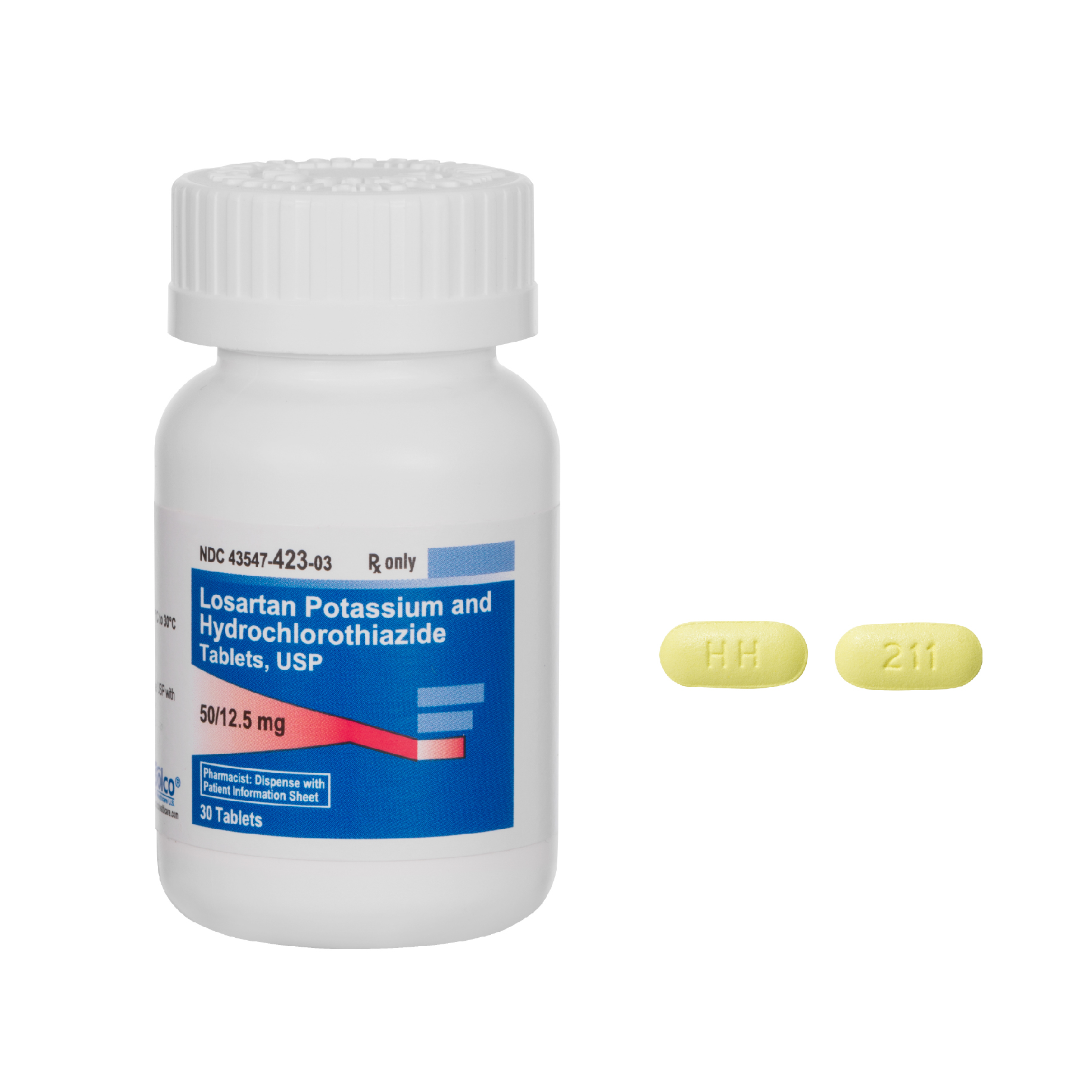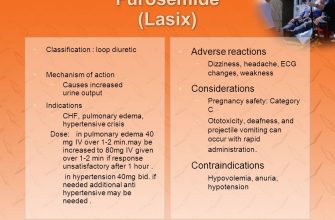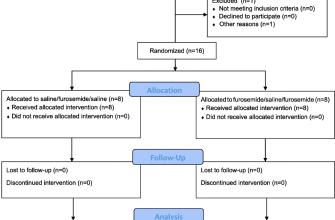Need to understand Losartan Potassium and Hydrochlorothiazide? This combination medication effectively lowers blood pressure by acting on two different systems within your body. Losartan blocks a hormone that narrows blood vessels, while Hydrochlorothiazide increases urine production, reducing blood volume.
This dual action makes it highly effective for managing hypertension. Many patients find their blood pressure controlled effectively with this medication. Remember to take it as prescribed by your doctor. Regular monitoring of your blood pressure is crucial for optimal treatment.
Important Considerations: Before starting this medication, inform your doctor about any pre-existing health conditions, particularly kidney disease or liver problems. Also, discuss all other medications you are currently taking, including over-the-counter drugs and supplements, to avoid potential interactions. Common side effects may include dizziness, fatigue, and changes in urination frequency. Contact your physician immediately if you experience significant side effects or your blood pressure remains uncontrolled.
This information is for educational purposes only and should not be considered medical advice. Always consult your healthcare provider before starting or stopping any medication.
- Losartan Potassium and Hydrochlorothiazide: A Detailed Overview
- Understanding the Individual Components
- Losartan Potassium: The Angiotensin II Receptor Blocker (ARB)
- Hydrochlorothiazide: The Thiazide Diuretic
- The Combined Effect of Losartan and Hydrochlorothiazide
- Common Uses and Prescribing Information
- Dosage and Administration
- Potential Side Effects
- Contraindications and Precautions
- Important Considerations
- Monitoring and Follow-up
- Potential Side Effects and Precautions
Losartan Potassium and Hydrochlorothiazide: A Detailed Overview
This combination medication treats high blood pressure. Losartan, an angiotensin II receptor blocker (ARB), relaxes blood vessels. Hydrochlorothiazide, a thiazide diuretic, increases urine production, lowering blood volume and pressure. This synergistic effect provides more effective blood pressure control than either drug alone.
Typical dosage involves taking one tablet daily, usually in the morning. However, your doctor will determine the correct dose based on your individual needs and response to treatment. Always follow your physician’s instructions meticulously.
Common side effects include dizziness, lightheadedness, and fatigue. Less frequent but possible side effects include dry cough, muscle cramps, and changes in potassium levels. Report any concerning symptoms immediately to your healthcare provider.
Before starting this medication, inform your doctor about all other medications you’re taking, including over-the-counter drugs and supplements. Pregnant or breastfeeding individuals should consult their doctor before use, as this medication may not be suitable.
Regular blood pressure monitoring is vital while taking this medication. Your doctor will schedule check-ups to assess your response and adjust the dosage if necessary. Maintain a healthy lifestyle with regular exercise and a balanced diet to maximize the benefits of the medication.
This medication may interact with certain drugs, including NSAIDs and potassium supplements. Discuss potential drug interactions with your doctor or pharmacist to prevent adverse reactions.
While this medication is generally safe and effective, individual responses vary. Closely observe your body’s reaction and maintain open communication with your doctor for optimal health management.
Understanding the Individual Components
Losartan potassium and hydrochlorothiazide work synergistically, but understanding each component individually provides a clearer picture of their combined effect.
Losartan Potassium: The Angiotensin II Receptor Blocker (ARB)
Losartan directly blocks the action of angiotensin II, a hormone that narrows blood vessels. This blockage leads to:
- Reduced blood pressure
- Improved blood flow to the kidneys
- Decreased strain on the heart
It’s important to note that losartan’s effect is primarily focused on vascular tone and blood pressure regulation.
Hydrochlorothiazide: The Thiazide Diuretic
Hydrochlorothiazide works by increasing the excretion of sodium and water from the body through the kidneys. This results in:
- Lower blood volume
- Reduced blood pressure
- Increased urine production
The diuretic effect complements losartan’s action, offering a more potent and sustained reduction in blood pressure.
Understanding these individual mechanisms helps patients appreciate how the combination medication achieves its therapeutic goal.
The Combined Effect of Losartan and Hydrochlorothiazide
Losartan, an angiotensin II receptor blocker (ARB), and hydrochlorothiazide, a thiazide diuretic, work synergistically to lower blood pressure. Losartan blocks the effects of angiotensin II, a hormone that narrows blood vessels, while hydrochlorothiazide increases urine output, reducing blood volume.
This combination therapy offers several advantages. Studies show that it often achieves better blood pressure control than either drug alone, particularly in patients with hypertension that’s not adequately managed by monotherapy. This improved control reduces the risk of cardiovascular complications like stroke and heart attack.
The enhanced efficacy stems from the complementary mechanisms of action. Losartan targets the renin-angiotensin-aldosterone system (RAAS), and hydrochlorothiazide directly affects sodium and water reabsorption in the kidneys. This dual approach addresses multiple aspects of blood pressure regulation.
However, combination therapy also presents potential side effects. Common ones include dizziness, lightheadedness, and fatigue, usually mild and transient. Less frequent, but more serious, side effects include hyperkalemia (high potassium levels) and dehydration. Regular monitoring of potassium levels and hydration status is necessary.
Dosage is typically adjusted based on individual patient needs and response to treatment. Your doctor will determine the appropriate dose of each component, starting with lower doses and titrating upwards as needed. Always follow your physician’s instructions.
Before starting Losartan/Hydrochlorothiazide, discuss any pre-existing conditions, particularly kidney disease or liver problems, and any medications you are currently taking with your doctor. They can help assess potential interactions and ensure the therapy is safe and effective for you.
Common Uses and Prescribing Information
Losartan potassium and hydrochlorothiazide is a combination drug primarily used to treat high blood pressure (hypertension). It effectively lowers blood pressure by relaxing blood vessels and increasing the excretion of salt and water from the body.
Doctors also prescribe this medication for patients with type 2 diabetes to help protect their kidneys. This protective effect is particularly beneficial for individuals with high blood pressure and protein in their urine, indicating kidney damage.
Dosage and Administration
Dosage varies depending on individual needs and response. Your doctor will determine the appropriate starting dose and adjust it as necessary. Typically, the medication is taken once daily, with or without food. It’s vital to follow your doctor’s instructions precisely.
Potential Side Effects
Common side effects include dizziness, lightheadedness, and fatigue. Less frequent, but more serious side effects may include allergic reactions (rash, swelling, difficulty breathing), low blood pressure, and changes in kidney function. Seek immediate medical attention if you experience any severe or unusual side effects.
Contraindications and Precautions
| Condition | Precautions/Contraindications |
|---|---|
| Severe kidney disease | Use with caution; dosage adjustment may be required. |
| Liver disease | Use with caution; close monitoring is needed. |
| Pregnancy | Generally avoided due to potential harm to the developing fetus. |
| Allergy to sulfa drugs | Contraindicated due to the hydrochlorothiazide component. |
Important Considerations
Regular blood pressure monitoring is crucial while taking this medication. Inform your doctor of all other medications you are taking, including over-the-counter drugs and herbal supplements, as interactions may occur. Avoid alcohol consumption while on this medication, as it can further lower blood pressure.
Monitoring and Follow-up
Your doctor will schedule regular check-ups to monitor your blood pressure and assess your overall health. This allows for timely adjustments to your medication or management plan, ensuring optimal results and minimizing risks.
Potential Side Effects and Precautions
Monitor your blood pressure regularly. Report any significant changes to your doctor immediately.
Common side effects include dizziness, lightheadedness, and fatigue. These usually subside as your body adjusts to the medication. Drink plenty of fluids to minimize dehydration, a potential contributor to dizziness.
Serious, though rare, side effects require immediate medical attention. These include swelling in your face, lips, tongue, or throat (angioedema), difficulty breathing, irregular heartbeat, and persistent cough.
Before starting Losartan and Hydrochlorothiazide, inform your doctor about all your medical conditions, particularly kidney disease, liver disease, diabetes, or lupus. Also, disclose all medications you are currently taking, including over-the-counter drugs and supplements, as interactions can occur.
This medication may affect your potassium levels. Your doctor may order blood tests to monitor this. Avoid excessive potassium intake through diet or supplements without consulting your physician.
Pregnancy warning: This medication is not recommended during pregnancy. Discuss family planning with your doctor before starting treatment.
Driving and operating machinery: Dizziness can impair your ability to drive safely. Avoid these activities until you know how the medication affects you.
Alcohol consumption: Limit alcohol intake as it can exacerbate the side effects of this medication, particularly low blood pressure.
Consult your doctor or pharmacist for any concerns or questions regarding this medication. They can provide personalized guidance and address your specific needs.









